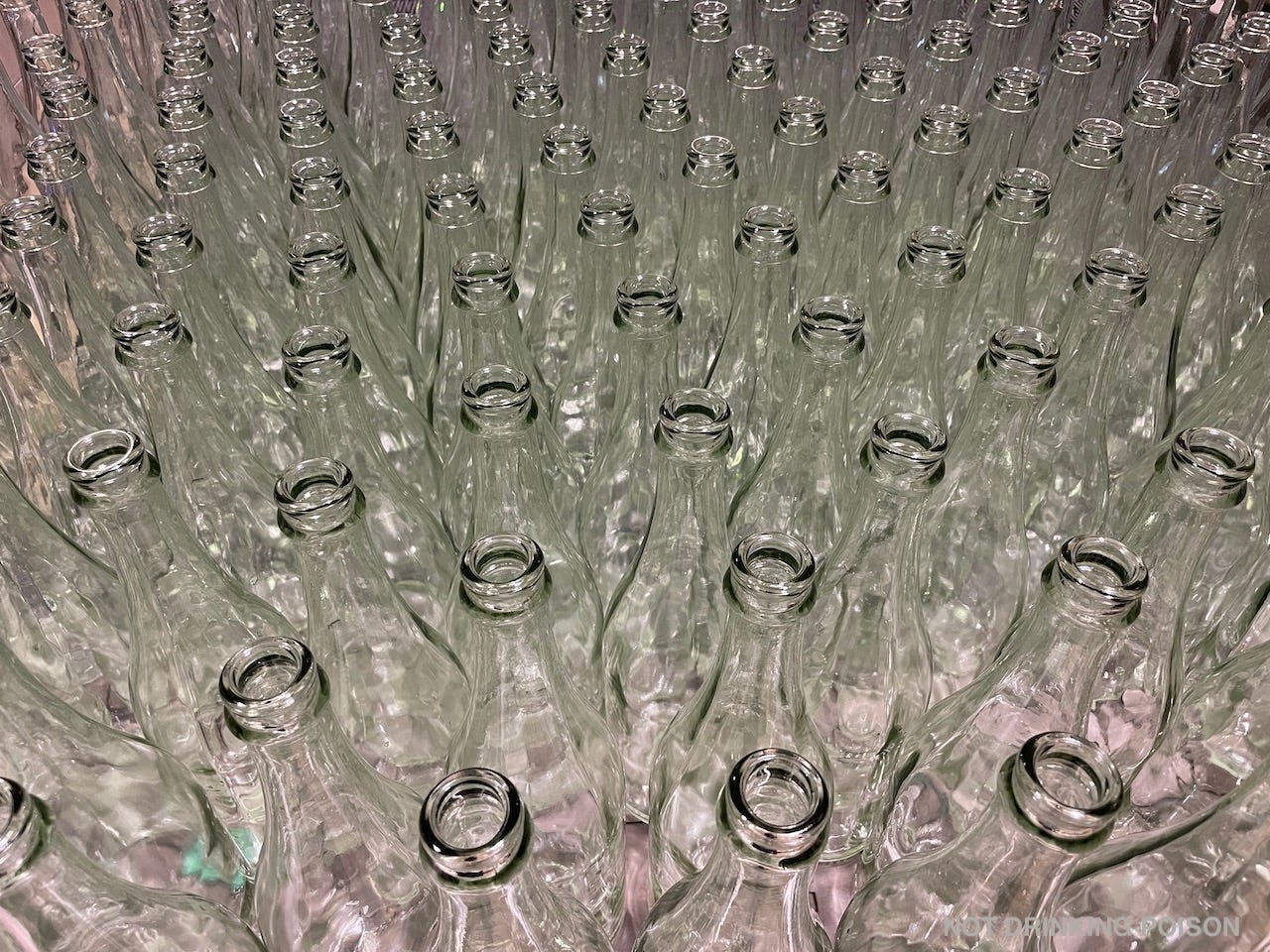Natural Wine & The Limits of AI
Why ChatGPT and other large-language models are antithetical to natural wine.
In the wake of the public release of ChatGPT and other chatbots powered by large-language models, it has been entertaining to witness commentators from across the business spectrum speculate on the impending cataclysmic disruption to their industry of specialization.
Wine has been no exception, with headlines this year announcing “The Bots Are Here. Time for the Wine Industry To Wake Up To Artificial Intelligence” (Meininger’s International), “How AI Will Be a Game-Changer for the Wine Industry” (Wine Industry Advisor), and “Can AI help drinkers buy a better bottle of wine?” (BBC).
Astute readers will note that these articles don’t concern wine, per se, as much as mass-market wine sales. ChatGPT - and generative artificial intelligence at large - apparently stands primed to revolutionize the marketing of wine that does not yet sell in sufficient quantities on its own merit. It represents a great leap in the “efficiency” of frictionless, which is to say thoughtless, wine consumerism. Actual natural wine, for which demand far outstrips supply, and which for various reasons doesn’t lend itself to easy scaling-up of production, is, to twist a phrase, not what the droids are looking for.
BEYOND IRRELEVANCE
But generative artificial intelligence is not merely irrelevant to natural wine. It is also, on some level, antithetical to natural wine, which, as Mathieu Lapierre once put it to me, involves, for vignerons, “a freedom to not all do the same thing.” (He spoke in specific reference to appellation charters.)
Chatbots powered by large-language models function by proposing the most probable words and sentences in a sequence, based upon an exhaustive comparison with existing, human-derived text sources. As such, their responses to a given prompt comprise a lifelike collage of majoritarian conventional wisdom, i.e. precisely that which natural winemakers reject in key features of their own methodology.
As you might imagine, sources detailing conventional synthetic chemical grape-farming methods and sources prescribing diverse winemaking additives far outnumber sources advocating (or, rarer still, detailing) natural wine production methods. In practice, this causes AI chatbots to evince a heavy bias in favor of the common standards and practices of conventional mass-market wine production.
A PROFESSIONAL PRODUCT
For example, I asked ChatGPT if I should filter a wine I was making, specifying that the wine was for personal consumption. Among its responses were the following howlers:
“If you value the aesthetics of your wine and want it to look as professional as possible, filtering might be a good choice.”
“If you intend to age the wine for a long period, filtering can contribute to wine stability and reduce the risk of spoilage or off-flavors over time.”
In reality, filtration strips wines of many elements that help them age successfully, including suspended fine lees and entrapped CO2. There is, meanwhile, no way of justifying the software’s reflexive association between professionalism and the flat, deadened visual aspect of a filtered wine. It strikes me as a grave subversion of the word “professionalism” to equate it with the practices of mass production. (A true winemaking professional can achieve clarity without fining or filtration.)
THE VIGNERONS OF THEIR FIELD
There is, for natural wine, a measure of distinction in being antithetical to artificial intelligence. Like cooking, winemaking’s continued reliance on apprenticeship, tactile information, and, perhaps most importantly, what Jules Chauvet referred to as the “intransmissibility” of tasting experience, make it peculiarly resistant to cooption by machines. This has largely insulated natural winemakers from the AI anxiety presently gnawing at screenwriters, coders, graphic designers, musicians, comedians, rappers, journalists, etc.
What about wine writers? Scientific American reports that generative AI produces convincing tasting notes. But I suspect this has more to do with the facile, arbitrary nature of the tasting note genre itself rather than the awesome powers of AI. Most tasting notes already read like they were generated by machine.
Many in the wine media are in the habit of referring to this or that winemaker du jour as a “rock star.” In an era when Grimes encourages others to employ simulacra of her voice and passable Drake deepfakes go viral, it doesn’t seem far-fetched that we might one day deem recording artists whose recorded output is truly inimitable to be the veritable vignerons of their field.

